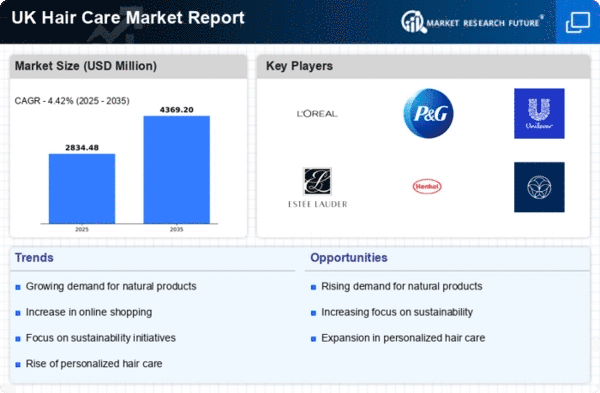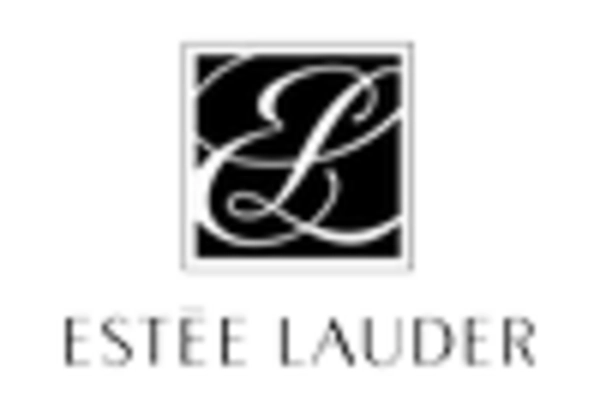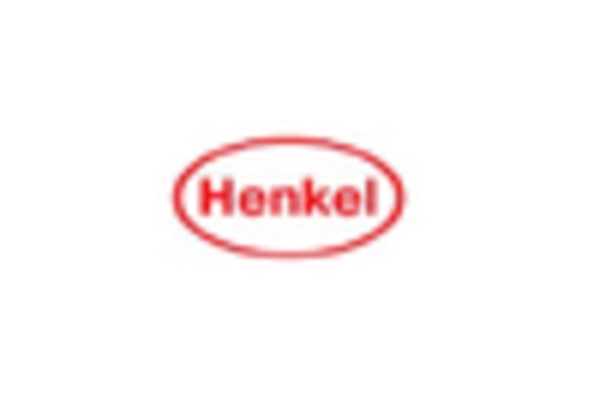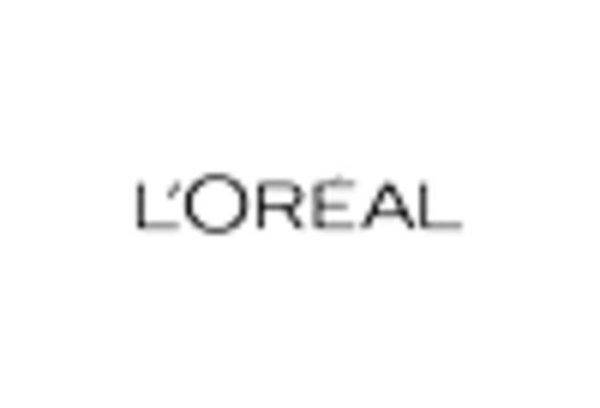Increased Focus on Scalp Health
The hair care market is increasingly recognizing the importance of scalp health as a critical component of overall hair care. Recent research suggests that a healthy scalp is essential for optimal hair growth and maintenance, leading to a surge in products specifically designed for scalp care. Approximately 30% of consumers are now seeking shampoos and treatments that address scalp issues such as dryness and dandruff. This growing awareness is prompting brands to innovate and expand their product lines to include scalp-focused solutions. As the emphasis on scalp health continues to rise, it is expected to drive growth and diversification within the hair care market.
Expansion of E-commerce Channels
The hair care market in the UK is experiencing a significant transformation due to the expansion of e-commerce channels. With the increasing preference for online shopping, particularly among younger consumers, e-commerce sales in the hair care market have surged. Recent data indicates that online sales account for approximately 25% of total hair care product sales in the UK. This shift is encouraging brands to enhance their online presence and invest in digital marketing strategies. As e-commerce continues to grow, it is likely to reshape distribution channels and consumer engagement in the hair care market, providing opportunities for brands to reach a wider audience.
Rise of Personalization in Hair Care
Personalization is becoming a key driver in the hair care market, as consumers increasingly seek products tailored to their specific hair types and concerns. Recent studies indicate that around 45% of UK consumers are willing to pay a premium for personalized hair care solutions. This trend is prompting brands to invest in technology that allows for customized formulations, such as hair analysis tools and online consultations. The hair care market is thus evolving to offer bespoke products that meet individual needs, enhancing customer satisfaction and loyalty. As personalization continues to gain traction, it is expected to reshape product offerings and marketing strategies within the industry.
Growing Demand for Sustainable Products
The hair care market in the UK is witnessing a notable shift towards sustainability, driven by increasing consumer awareness regarding environmental issues. A significant portion of consumers, approximately 60%, now prefer products that are eco-friendly and ethically sourced. This trend is influencing brands to adopt sustainable practices, such as using biodegradable packaging and natural ingredients. The hair care market is responding by launching a variety of sustainable products, which not only cater to consumer preferences but also align with regulatory pressures for environmental responsibility. As a result, companies that prioritize sustainability are likely to gain a competitive edge, potentially increasing their market share in the hair care market.
Influence of Social Media and Beauty Influencers
The hair care market in the UK is significantly impacted by the rise of social media and beauty influencers, who play a crucial role in shaping consumer preferences. Approximately 70% of consumers report that social media influences their purchasing decisions, particularly in the beauty sector. Influencers often showcase hair care products through tutorials and reviews, creating a direct connection with their audience. This trend is driving brands to collaborate with influencers to enhance visibility and credibility in the hair care market. As social media continues to evolve, its influence on consumer behavior is likely to grow, making it an essential component of marketing strategies for hair care brands.
















